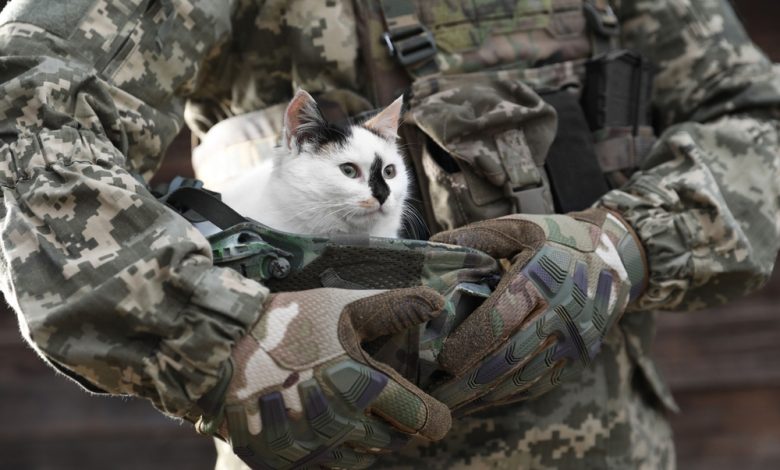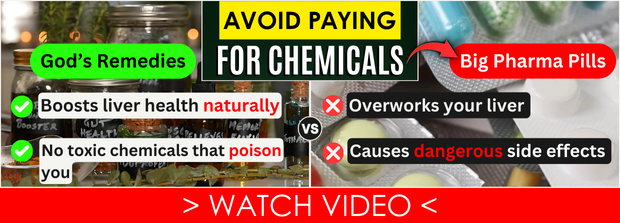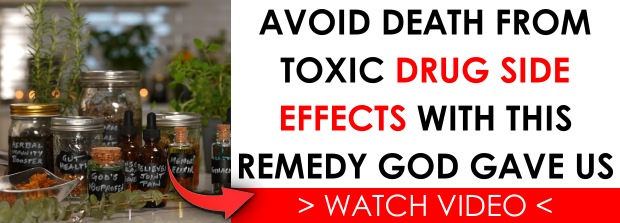Why Kindness Still Matters in Collapse – Survivopedia

When the grid collapses, the first thing you’ll notice isn’t the dark. It’s the quiet, the emptiness of abandoned streets, and the sudden, harsh clarity that survival isn’t just about ammo or canned beans. You can lock your doors and sharpen your knives all you want, but the truth is, the people around you matter just as much.
Kindness still has a place in this fast-paced world, but not the sentimental, Hallmark kind. I’m talking about cold-eyed, strategic kindness. The type that can keep you alive when every other option fails. You know, the one that turns “neighbor” from a potential threat into a calculated ally.

Lone Wolves Don’t Last
History doesn’t sugarcoat it, and by now you should know that survival isn’t a solo game. From the streets of Venezuela to the flooded neighborhoods of New Orleans, individuals who tried to tough it out alone rarely made it past the first wave of chaos. Communities, by contrast, adapted, and they managed to survive it all. They pooled resources, shared intel, and defended each other when bullets or scarcity became a daily reality.
You might be thinking, “I can handle myself,” and you probably can, but in a world where every scrap counts, trust is currency, and loyalty is rare. Kindness, if used strategically, is your most valuable asset. That’s right, a shared meal, a borrowed tool, even something as minor as an extra bottle of water, is more than generosity, and it becomes an investment in your own survival network.
>>History proves it: those who tried to go it alone rarely survived. Discover the overlooked survival patterns that past generations relied on when everything else collapsed.
Kindness as Currency
When the shelves are empty and the stores are looted, kindness becomes a currency. Not in the abstract “feel-good” way, but in a very concrete, pragmatic sense. Your reputation, your reliability, and your willingness to help are worth more than silver or gold because they secure you allies in a world that’s suddenly dangerous.
Imagine this: you’ve got a neighbor who’s good with traps but has a weak back. You trade a few cans of preserved food for them to set snares for game around your property. Both of you walk away with more than you started with. That’s currency in action, if you will, an exchange built on trust and necessity.
Even “trash” becomes valuable, and scraps of cloth, old batteries, leftover tarp, and bent metal can be traded. If you give the right thing at the right time, you build trust. At this point, you’re not just surviving, you’re building a network. And networks, my friend, survive far longer than any fortress wall.
Lessons from the Past
The world has tested humans before, and for example, during the Argentine economic collapse, entire neighborhoods set up communal “street kitchens,” cooking for anyone in reach. People who otherwise might have fought over scraps ended up sharing meals and sharing intelligence about safe routes, barter opportunities, and food caches.
Or take the Cajun Navy during Hurricane Katrina. These weren’t uniformed professionals; they were neighbors who took small boats and a lot of guts into the flood to save strangers. Not for glory, not for charity, because they knew cooperation kept more people alive than bravado ever could.
Even in Sarajevo, during the longest siege of a European city since World War II, neighbors pooled water, food, and heat. Survival wasn’t just about rationing supplies but rather about being smart with the people around you. Being seen as someone who could be counted on meant fewer eyes looking at you as prey and more hands ready to lift you when you stumbled.
>>Communities that endured disaster weren’t the strongest but the most adaptable. Learn how entire families and neighborhoods pulled through with skills we’ve almost forgotten.
Why Seasoned Preppers Overlook It
Let’s address the elephant in the room. Many of us spend years obsessing over ammo counts, food caches, and bug-out routes. We stockpile water purification tablets, multi-tools, and tactical gear. Sometimes we drill evacuation plans and rehearse every possible scenario. We train ourselves to think in metrics, logistics, and risk ratios, constantly calculating how many bullets it takes to hold a perimeter or how long a food cache will last.
And when it comes to kindness? Most believe that’s soft and it’s for beginners who don’t understand the stakes. It doesn’t fit neatly into spreadsheets or checklists. There’s no zeroing a rifle sight for “how much trust to give my neighbor.” For a hardened prepper, it can feel inefficient, even risky. After all, generosity can be exploited and, in a collapse, there’s no room for mistakes, right?
Here’s the thing: kindness isn’t soft if used properly, and it becomes a tactical advantage. It’s a tool, like any multi-tool or fire-start kit, but it works on human behavior instead of mechanical systems. When a collapse strips the world to basics, your allies will be more valuable than any weapon you’ve hoarded. One neighbor you’ve helped feed or protected might be the one covering your blind spot while you gather firewood or scout for supplies. Another might have the skills you desperately lack, like first aid, or even just the courage to stand watch when things get hairy.
Treat your neighbors like disposable trash, and don’t be surprised when they return the favor or worse, when they make your life harder. On the other hand, establish a reputation as reliable, fair, and smart with generosity, and you gain leverage no stockpile can replicate. People remember who helped when the lights went out and who just counted bullets while the community fractured. That reputation becomes currency, and sometimes that’s more important than any supplies you might have stockpiled.
Also, let’s not forget the subtle psychological edge. In high-stress survival environments, morale is fragile, and a single act of kindness can keep someone’s mind sharp, focused, and cooperative instead of paranoid and self-destructive. You’re not just surviving physically, and what you’re doing by giving a helping hand is building mental resilience in your circle. That’s a tactical advantage few preppers even consider until it’s too late.
In short, kindness is far from soft if you know what you’re doing. It’s a strategy, an insurance, and a multiplier for survival. Ignoring it doesn’t make you tough or smarter, and just narrows the circle of people willing to have your back when everything else fails.
>>When resources are scarce, reputation becomes wealth. See how you can turn everyday items into survival currency that outlasts money.
The Mechanics of Survival Kindness
So, what does “kindness” actually look like when bullets fly and food is scarce? Let me give you a few examples:
Small gestures: Sharing a spare battery, offering an extra ration, lending a tool. Nothing heroic, but it signals reliability. People can now trust you.
Calculated generosity: Trading surplus for services, like guarding your perimeter or scouting. You’ve just built a “symbiosis” relationship.
Network building: Remember that every person you treat with respect and fairness might become a sentinel, a hunter, or a medic in your circle. Put in kindness and you get the best out of people.
These simple gestures help you build a cooperative system that multiplies everyone’s chances.
The Line Between Kindness and Weakness
Now, don’t confuse this with being naive. Strategic kindness isn’t about letting anyone walk over you or leaving your doors unlocked while strangers rifle through your pantry. It’s about setting hard boundaries and knowing exactly where generosity ends and self-preservation begins. You’re generous, yes, but only within the framework of survival logic. Every act of kindness should have a purpose and a consequence. It’s as much about signaling trustworthiness as it is about actually helping.
Remember that mercy without boundaries invites exploitation. Someone who sees weakness will exploit it, not because they’re inherently evil, but because in a collapse, opportunity drives behavior. You can be compassionate and cautious at the same time. Experienced survivalists understand this duality. For example, when you hand over a ration to someone in need, you watch their reactions, gauge their intentions, and ensure it doesn’t compromise your own safety.
Consider a prepper community managing a water cache. Sharing a few gallons with trusted neighbors strengthens alliances. But handing out unlimited access to anyone who knocks at your gate? That’s how a small problem turns into a crisis.
The same principle applies to information, labor, and protection. Being kind strategically means calculating risk without sacrificing humanity. It’s about being someone people can rely on, but never someone they can take for granted.
The hardest survivalists I’ve seen are the ones who know when to extend a hand and when to tighten their grip. They understand that true resilience isn’t measured by how much you hoard but by how effectively you maintain your network while protecting your core.
That duality is what keeps a community functional and a prepper alive. It’s not just survival, but rather a form of social engineering under extreme conditions, where the right balance between generosity and firmness can literally mean life or death.
Loyalty Outweighs Firepower
Here’s where the gritty truth hits the hardest: ammo isn’t loyalty, and water rations don’t build trust. A stockpile of canned food might keep you alive, but it won’t guarantee that your perimeter is watched, your blind spots covered, or your family defended when threats arrive. Your neighbor, the one who could have robbed you at first sight, now has your back because you helped them when it mattered, and in my opinion, that’s real tactical power.
In survival, skill and trust trump raw resources every time. One loyal, competent individual can be worth more than a dozen strangers with no attachment, no stake, and nothing to lose. They’ll stand watch in a blizzard, carry wounded people from danger zones, and share intelligence about threats, all because you invested in the relationship beforehand.
Think about small acts: sharing a battery for a critical radio, helping repair a roof before the storm, offering a few extra rations for someone scouting the perimeter. These gestures aren’t just kindness but rather strategic reinforcements. Actions speak louder than words, and they forge loyalty that ammo or food alone cannot buy.
>>Loyalty can guard your blind spot in ways ammo never will. Discover how to build trust networks that become your real defense line in collapse.
Don’t Treat People Like Trash
The keyword here is “trash,” and it has a metaphorical role. If you treat people like disposable objects, don’t expect generosity to return to you. Humans remember, and they repay. However, in a crisis or SHTF scenario, “repayment” can mean survival or death.
Conversely, recognizing value in others even when society labels them as “trash” pays off in trust networks, shared labor, and protection. You never know whose skills, insight, or courage will tip the balance in your favor when things get dark.

My two cents
The strongest communities, the most resilient individuals, are those who understand human value. They know the cost of isolation, the payoff of trust, and the subtle currency of calculated kindness.
Keep in mind that being kind doesn’t make you weak. It turns you into an adaptable survivalist, and it helps you build a trustworthy survival group.
So, the next time you consider tossing out scraps, ignoring a neighbor, or hoarding food with tunnel vision, think strategically. Even in collapse, the world isn’t just rocks, water, and bullets. It’s people, and those who understand this will last longer than those who treat everyone else like trash.
Read the full article here









